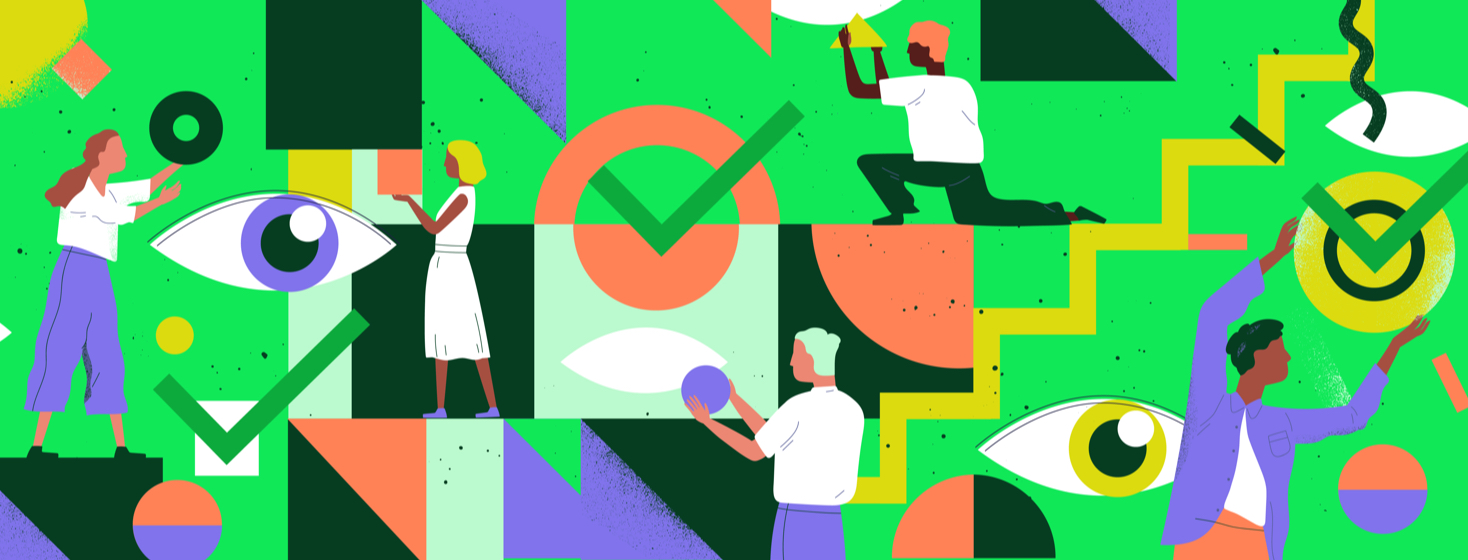Make It a Can-Do Instead of a Can't-Do Attitude
The phrase ‘can-do attitude’ has been on my mind lately not only as I work with people who have macular degeneration and low vision but also in my own life. Yesterday I realized that I’ve been telling myself that I can’t do this, I can’t do that for a multitude of reasons. Last night I went to bed with that on my mind. I woke this morning with the thought that I CAN do more than I give myself credit for. I believe that we ALL can.
'What if' planning
This is especially relevant, I think, to those of you who have a visual impairment from macular degeneration or any eye disease that causes it. I also think that this is an attitude that is beneficial for those of you whose vision is fine now but may not be in the future. Doing some 'what if' planning sounds scary. You may never need it, but if you do, you will be ahead of things instead of behind.
What is a can-do attitude?
It’s not something I came up with. The Merriam-Webster online dictionary defines 'can-do' as “characterized by eager willingness to accept and meet challenges.”1 I propose one change to that: we don’t always have to be ‘eager’ to accept and meet challenges. Sometimes the task appears so daunting that we may have to be dragged kicking and screaming to meet a challenge.
The AMD Lifestyle
In my article ‘The AMD Lifestyle: Attitude’, I wrote that it’s important to be optimistic and hopeful and gave examples of the resources and support currently available. About being hopeful, I wrote:
"There are many definitions of ‘hope’. This is the one I like the best, “Hope is the belief that circumstances in the future will be better.” Living 'The AMD Lifestyle' means that you believe that no matter what happens with your vision in the future – be it tomorrow, a month, a year, 10 years – circumstances will be better ..."
I listed reasons why the circumstances regarding your vision will be better in the future because, among other things, with the AMD Lifestyle, you are willing to learn how to use the many resources and support that are available to you. In addition, there's tons of research and more and more new technology for those with low vision.
The can-do attitude and vision loss
In the four years that I've been working with people who have vision loss, I have many examples of what people CAN do. Here are some of them, but the list is in no way complete:
- There are people who continue to do artwork, photography, and crafts of many kinds.
- Many people still work part- or full-time jobs or run their own businesses. They work as teachers, scientists, farmers, computer experts, engineers, mechanics, accountants, musicians, nurses...the list goes on and on!
- There are people who are raising children and grandchildren.
You name it, I've probably met someone with vision loss from macular degeneration who does it!
Willingness to adapt
There's a great article 'Resilient People Live Well with Vision Loss' that quotes Helen Keller: "Although the world is full of adversity, it is full also of the overcoming of it."2
The author writes what I think is a description of a can-do attitude with a visual impairment:
"The best way to face adversity is with a no-nonsense, problem-solving approach. It was time to stop being emotional and get to the business of learning to live with blindness. I needed to find resources, learn new skills, and advocate for myself. This meant getting counseling, vision rehabilitation services, and attending a support group. Maybe for you, this means it is time to embrace the white cane or get a guide dog! You must take action steps."
What you can do
These are just a few of the suggestions about what you can do:
- Reach out to others on their journey through local support groups, online groups and pages.
- Volunteer to help others who are on their journeys with emotional and physical challenges.
- Educate yourself about the disease to learn what is fact and what is fiction.
- Learn how to use low-tech and higher-tech low vision aids. Notice I said 'higher' rather than 'high.' You don't have to be a highly-technical person to use many of the devices and apps available today. It's often called 'assistive technology.'
Tell us about it
I'll work on changing my self-talk and words to others from "I can't do that" to "I CAN do this" if you will.😉
As I wrote above, you can reach out to others on this journey with macular degeneration. So, tell us what YOU can do!
You could quite possibly inspire others. It happens every day.

Join the conversation